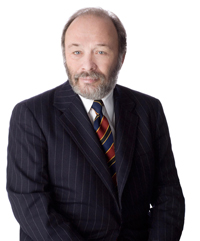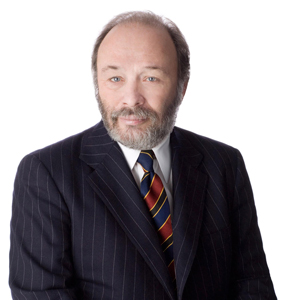 Serena Hutcheson wasn’t ready to let go of her 80-year-old grandmother, but she learned how to do so from watching her own mother prepare her to say goodbye in the most dignified way possible. “Just the act of watching my mom sit down with my grandmother and talk about this topic was probably one of the hardest things I’ve had to witrress,” Hutcheson said. “I’m just glad that they fought through the awkwardness and made a plan that allowed all of us to know how they wanted the end to be.”
Serena Hutcheson wasn’t ready to let go of her 80-year-old grandmother, but she learned how to do so from watching her own mother prepare her to say goodbye in the most dignified way possible. “Just the act of watching my mom sit down with my grandmother and talk about this topic was probably one of the hardest things I’ve had to witrress,” Hutcheson said. “I’m just glad that they fought through the awkwardness and made a plan that allowed all of us to know how they wanted the end to be.”
Today, baby boomers are frequently faced with the reality that their parents are nearing death and in many cases, there are no plans for how loved ones will receive care in the end. That’s why Bruce Kupper, president and CEO of Richmond-based MEDARVA Healthcare, invited Time magazine columnist Joe Klein to speak about his personal experience with his own parents in the last days of their lives and about the challenges the family encountered. Klein wrote about the journey for Time last summer in an article called “The Long Goodbye,” which Kupper says, truly resonated with him.
In the article, Klein talks about the many decisions he had to make for his parents and what he calls lucking into the Geisinger Health System, an integrated health services system widely recognized for its innovative use of electronic health records, and the development and implementation of innovative care models. Ultimately, this innovative system for care completely changed the renowned author’s outlook on how healthcare is delivered.
“This was a contemporaneous learning experience that I had and so many members of my generation, the baby boomer generation, are now having,” Klein said. “It’s The first time in the history of the world that any generation has faced a similar problem, which is parents who are living to very old ages, routinely past ninety – and sometimes up to a hundred.”
Klein said he understood all of this in the abstract, but it wasn’t until his own parents reached those ages and he had to take responsibility for them that he began to understand how complicated the process could be.
Speaking in Richmond last month, Klein shared his own experiences making healthcare decisions for his parents as their health steadily declined. He reflected on the fact that engaging in an open dialogue with his mother and father about the way they would live the last days of their lives was never really an option.
“My dad had spent his whole life in charge,” said Klein, describing how his dad was a proud man, the president of a printing company and the leader of his family – a portrait familiar to many of us. “It became obvious over time that dad thought he was in control of things, but he wasn’t. He thought he could manage a staff of home healthcare workers who needed to take care of mom. He wouldn’t grant me the medical power of attorney and I had to work around Him just to talk to his doctors.”
Because his father insisted on maintaining control, the opportunity to sit down and have a discussion about how his parents would prefer to live out the last days of their life never presented itself. Klein spoke about families all over the country who are faced with this very situation, and in his case, it left him and his siblings with no sense of direction once his parents’ health started to worsen. Eventually, the day came when he was contacted with the news that his mother’s death was imminent.
Klein says he was interviewing Senator Chuck Grassley in Iowa when he got the call. The voice on the phone told Klein his mother was back in the hospital with pneumonia, but this time, she wasn’t eating. He describes feeling like he was acting as his mother’s death panel – a term that had been recently introduced into the political arena he had been writing about at Time for years. Now he would be the one making decisions on his mother’s behalf – going on what doctors and nurses were telling him with no sound understanding of the facts. According to the healthcare providers, the decision was simple: If his mother didn’t receive a feeding tube, she wouldn’t survive on her own.
Knowing that his mother was vehement about how she wanted to die, Klein explained over the phone that her wish was to, “Just pull the plug. Let me die. I don’t want to be a vegetable.” But there was no plug per se, and far from his mother’s side, he wasn’t sure if that time had come.
He recalled asking the doctor how long his mother would live if the feeding tube weren’t inserted. The response that followed, Klein says, was far from a confident answer: “We’ve taken care of the pneumonia, but she’s not eating. So weeks? Days? She needs nourishment.” The words replayed in his head.
At that time, Klein was in Iowa and his brother was in Asia. He didn’t feel comfortable making the decision without seeing his mother. He wondered if she could make it through this and maintain some quality of life. His next step? Klein issued the order to put in the feeding tube and returned as soon as he could.
That was the beginning of five months of anguish, as Klein describes serving on the death panel for both his mother and his father, whose health had already begun to decline when his wife was diagnosed with pneumonia. The two passed away within weeks of each other, but the circumstances of their deaths were not unusual. As Klein wrote in the Time article: “Many of my friends have been through similar experiences with their parents in recent years. But we grieve in different ways, and my way, I guess, is to write about it – and also to examine the policy implications of how we treat the elderly.”
What Klein essentially discovered through his experience with his parents, in relation to how the elderly are treated medically, is that there is currently a system that works really well, and one that doesn’t. He found out the hard way that the elements of care his parents received initially, and what many receive today – what’s known as a fee-for-service system – is actually broken. In a stroke of luck, however, Klein ended up putting his parents into a private nursing home which instituted the Geisinger healthcare system – one in which doctors are paid salaries and issued performance bonuses based on outcome, rather than on the number of services they perform.
“Under the current system, they [health professionals] will always give the extra test, insert the feeding tube, do the extra procedure and so on, even when it isn’t in the patient’s best interest, or when it isn’t among their desires,” Klein explained. “That’s the biggest problem we have right now and the most expensive problem we have. We are in a situation where, as I found, we can deliver really top-notch medical care more efficiently and less expensively if we do it in a way that I haphazardly discovered.”
Klein reflected on the level of candor, sanity, and humanity of the Geisinger doctors he dealt with and how refreshing of an experience it was. “They helped me through some of the toughest decisions I’ve ever had to make,” he said. “My parents died serenely, with dignity. When you are a death panel – when the time and manner of their passing is at least partly in your hands – that is the very best you can hope for. I want to be a part of a system like that for myself.”
Today, there’s a paradigm shift in how baby boomers and their children are addressing this topic. Klein noted during his talk to the Richmond community that many children have watched their parents deal with making these types of end-of-life decisions for their own parents and that it has itself created an opportunity for open discussions.
Additionally, as the population ages, more programs broaching the topic of how to provide end-of-life care are being offered and attended in high numbers.
“We understand that this is a very important and critical topic that people are facing each and every day,” said Kupper of MEDARVA Healthcare, the sponsor of Klein’s talk in Richmond. “There are currently multiple generations addressing this issue and if we can help someone make better, more educated decisions, which leads to a sense of peace, that is always our goal.”
Operation Engage: Talk About Healthcare Options
“Bringing Joe Klein to Richmond was an important part of the MEDARVA goal to help engage the community in exploring innovative solutions in healthcare,” says Bruce Kupper, president and CEO of MEDARVA Healthcare.
If you missed Time columnist and healthcare advocate Joe Klein in Richmond last month, visit medarva.com to v i ew a recording of the talk.
Additionally, Medarva has created A Practical Guide to Navigating Life’s Last Decisions. The conversations and decisions surrounding a loved one’s last days can be difficult ones. This planner w a s designed to assist in getting answers to vital questions, as w e l l as compiling and organizing important documents and information, making it all easily accessible w h e n needed. Visit Medarva.com to access this information, along w i t h other helpful resources, to make it easier to have this discussion and make plans for the last days of life for yourself or for a loved one.
Furthermore, April 16 has been designated National Healthcare Decisions Day to raise public awareness of the need to plan ahead for healthcare decisions related to end-of-life care and medical decision-making whenever patients are unable to speak for themselves. The designation also encourages the specific use of advance directives to communicate these important healthcare decisions.
Virginia’s statewide Advance Health Care Directive Registry (AHCDR) is also an excellent resource. The secure registry, available to all Virginia residents, stores documents that detail and protect healthcare wishes in the event a person is unable to speak for themselves. These documents include medical power of attorney, do-not-resuscitate (DNR) orders and other health care wishes. For more information, visit vda.virginia.gov/advmedir.asp.




